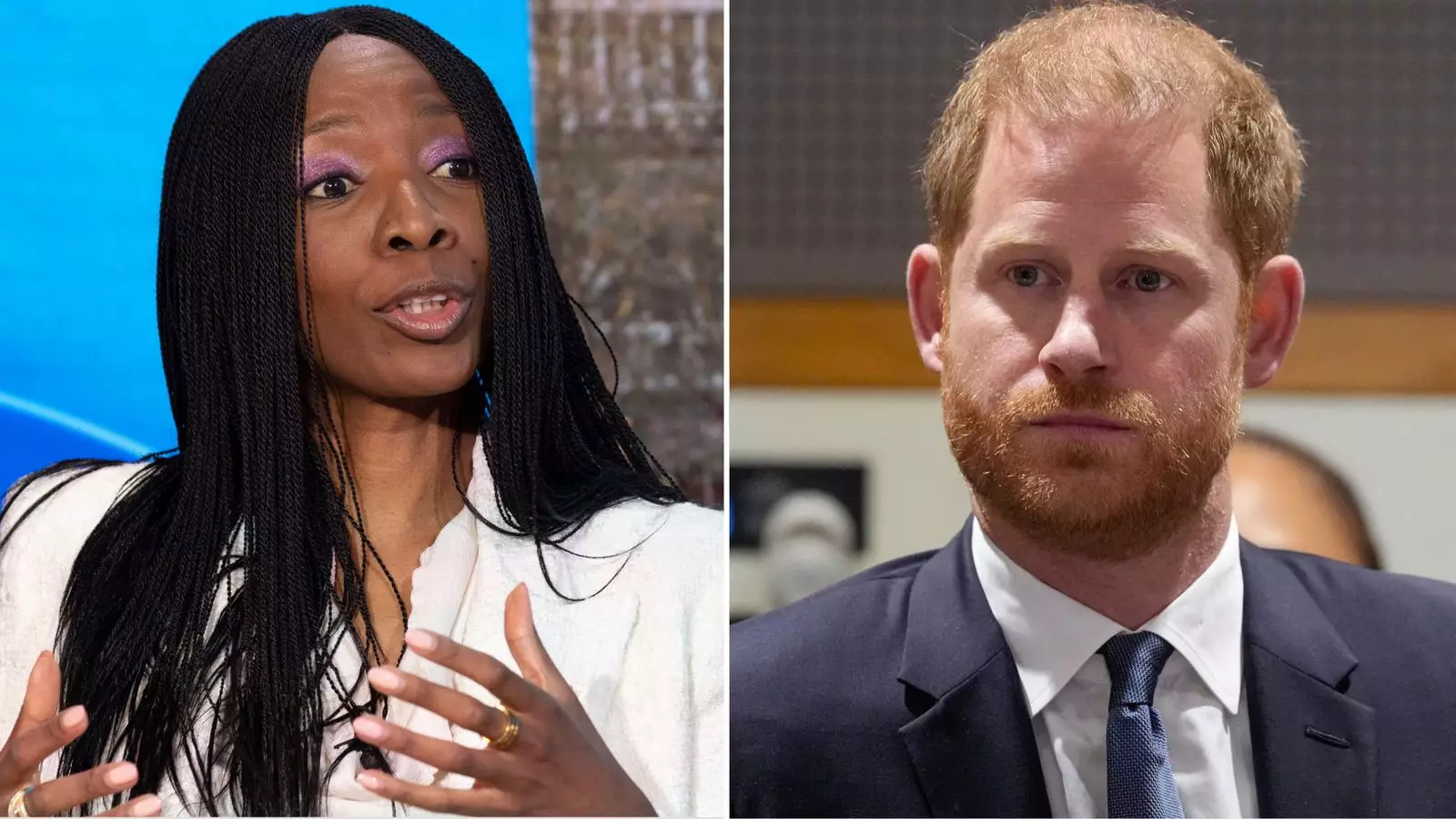Recent developments at Sentebale, the charity co-founded by Prince Harry, have unmasked deep fractures within the organization, turning a noble cause into a contentious battleground. The chair of Sentebale, Dr. Sophie Chandauka, leveled explosive accusations against Prince Harry, alleging “harassment and bullying at scale.” This kind of public dispute encapsulates not only the personal strife involved but also the broader implications for charity governance and the responsibilities of individuals in positions of power. Underneath the glitz and glamor of royal philanthropy lies a troubling landscape often masked by a veneer of altruism.
The Sussex PR Machine: A Double-Edged Sword
Dr. Chandauka’s claims suggest that Prince Harry engaged in a deliberate campaign to mar the reputation of the charity and its leadership. “Unleashing the Sussex PR machine,” as described by Dr. Chandauka, indicates a calculated use of media to manipulate narratives, an approach not uncommon in today’s celebrity culture. While using public relations to shape perceptions isn’t new, employing such tactics against one’s own organizations raises questions about loyalty, ethics, and personal grudges. The idea that philanthropic endeavors can devolve into public feuds showcases a disheartening reality where the nobility of one’s mission is often overshadowed by personal disputes.
A Toxic Turn: Allegations of Bullying and Harassment
The serious allegations of bullying and governance issues might seem shocking to outsiders, but they expose longstanding problems within charitable organizations. Dr. Chandauka’s remarks about power dynamics and mistreatment probe deeper societal issues, revealing a potential culture of silence and complicity that often exists within non-profits. If such accusations prove true, they underscore the necessity for robust oversight and accountability mechanisms in charities, which often operate with a level of opacity that could harbor mismanagement and ethical dilemmas.
It is crucial to recognize that when influential figures like Prince Harry step away from their roles, the implications reverberate beyond individual antagonisms, impacting real lives—such as the vulnerable children Sentebale aims to help. This situation also highlights the importance of creating safe spaces for whistleblowers within organizations, ensuring that voices can raise concerns without fear of retribution.
The Board’s Response: A Fractured Collective
Former and current trustees, such as Dr. Kelello Lerotholi, have expressed disbelief regarding the bullying and harassment claims. Their accounts provide a stark contrast to Dr. Chandauka’s narrative, suggesting a disconnect that could stem from differing experiences and perspectives. The board’s collective tone of respect reportedly experienced underlines a common issue in non-profits: the challenge of maintaining a cohesive and respectful culture, especially in the face of disagreements about direction and governance.
The tension surrounding Sentebale’s infrastructure and loyalty among its members serves as a case study on the fragility of leadership within charitable organizations. Disputes among board members and founders need to be navigated with care to safeguard the organization’s mission, which should always take precedence over personal grievances. The optics of a power struggle only roads to diminishing trust among stakeholders.
The Broader Implications for Celebrity Philanthropy
This episode has broader implications for the world of celebrity philanthropy. When public figures get embroiled in disputes, it risks diverting focus from the causes they advocate for. Glitzy and glamorous charity events, often rife with commercial undertones, can create a false narrative that philanthropy is inherently virtuous, overlooking the intricacies of human relationships that can falter. The idea that someone with significant star power might use their influence to intimidate or manipulate raises concerns about ethical boundaries in philanthropic endeavors.
While Prince Harry’s intentions to honor his mother through Sentebale were undoubtedly altruistic, the fallout illustrates how unchecked power, even when laced with good intentions, can lead to disarray. The temple of altruism can crumble under the weight of personal agendas and betrayals. In a polarized world, as we witness the entanglement of privilege and purpose, it’s imperative for charities like Sentebale to adopt transparent practices that prioritize their mission over the egos of individual board members.
The Sentebale saga ultimately asks a crucial question: Can philanthropy survive the very human flaws that often come with it? The answer may hinge on a collective commitment to governance that values integrity and accountability.

